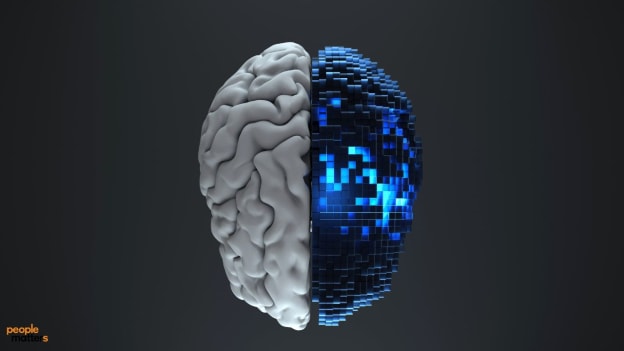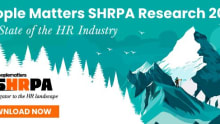Using AI in HR? Singapore employers must follow the rules

In deploying AI-powered HR tools, organisations should refer to guidelines on responsible AI development and use, the Manpower Ministry said.
SINGAPORE – Whether you’re using AI to screen candidates or opting for automated performance reviews, you must follow the same rules governing employment practices for all.
The Ministry of Manpower last week clarified regulations surrounding companies’ use of Automated Employment Decision Tools, or AEDT, for a host of HR processes from candidate sourcing and screening to onboarding/offboarding, performance reviews, compensation planning, and the like.
AEDTs assist – if not altogether replace – decision making in HR. In an ideal world, these AI-powered tools not only expedite HR processes by pulling data from thousands of sources at lightning speed. But they also draw logical conclusions and form powerful insights from data patterns, and are thus able to recommend the best course of action.
More importantly, such tools are designed to eliminate, mitigate or report on biases that might taint the decision-making process.
For the Manpower Ministry, however, the use of even the most powerful AI tools does not preclude organisations from adhering to fundamental workplace practices.
“Regardless of the technological tools used to aid employment decisions, such as hiring or promotions, employers must comply with the Tripartite Guidelines on Fair Employment Practices, which promotes fair and merit-based employment practices,” Manpower Minister Tan See Leng in response to a query on AEDTs.
Fair employment practices in Singapore
Singapore’s Tripartite Guidelines on Fair Employment Practices are founded on five core principles aimed at ensuring fair and merit-based employment:
Recruit based on merit. Employees should be selected based on skills, experience, and ability, irrespective of age, race, gender, religion, marital status, or disability.
Respect employees. Employers must treat employees fairly and implement progressive human resource management systems.
Provide fair opportunities. Employees should have equal access to training and development opportunities tailored to their strengths and needs.
Reward fairly. Compensation should be based on individual ability, performance, contribution, and experience.
Comply with labour laws. Employers are required to adhere to all relevant labour laws and the TGFEP itself.
“If certain AI use results in discriminatory employment practices, workers or job applicants can approach the Tripartite Alliance for Fair and Progressive Employment Practices (TAFEP) for assistance,” Dr. Tan said.
“TAFEP will work with the employer to address the grievances of the workers or job applicants and ensure that the employer’s recruitment or performance appraisal processes adhere to the principles of fair employment.”
The minister also pointed out that the alliance is yet to receive reports of unfair treatment arising from AI use.

How Singapore monitors AI use
With regard to companies using AI, Singapore monitors compliance with guidelines through several mechanisms:
Self-assessment tools. Organisations are encouraged to use frameworks like AI Verify, which allows them to conduct voluntary self-assessments of their AI systems against established governance principles.
Reporting mechanisms. Employees and the public can report discriminatory practices or grievances related to AI usage to the TAFEP, which investigates and resolves issues.
Government oversight. Regulatory agencies such as the Infocomm Media Development Authority and the Personal Data Protection Commission oversee compliance, ensuring organisations adhere to ethical standards and data protection laws.
Regular reviews. The government conducts periodic reviews of AI frameworks to adapt to emerging technologies and concerns, ensuring ongoing relevance and effectiveness in monitoring compliance.
Meanwhile, employers are provided with comprehensive training on using AI fairly through various programs that focus on ethical practices and compliance. Key training components include:
Understanding AI principles. Training covers the fundamentals of AI, including machine learning and data literacy, to ensure employees grasp how AI systems operate.
Bias awareness. Employees learn about potential biases in AI algorithms and how to mitigate them, promoting fairness in decision-making.
Legal compliance. Training includes familiarisation with relevant regulations, such as GDPR, ensuring that AI practices align with legal requirements.
Ethical use. Workshops emphasise ethical considerations, including transparency, accountability, and the importance of fair treatment in AI applications.
Continuous learning. Ongoing education is encouraged to keep employees updated on AI advancements and ethical challenges in the field.
These training initiatives aim to foster a culture of responsibility and ensure that AI tools are used effectively and equitably within organizations.
“AI technologies are evolving at a fast pace. In deploying AI-powered HR tools, organisations should refer to the guidelines introduced by the government to support responsible development and use of AI,” Dr. Tan said.
“The government will continue to closely monitor the trends in AI adoption and work with our tripartite partners, the Institute for Human Resource Professionals and broader HR community to regularly assess if existing guidelines and regulations are adequate.”
















